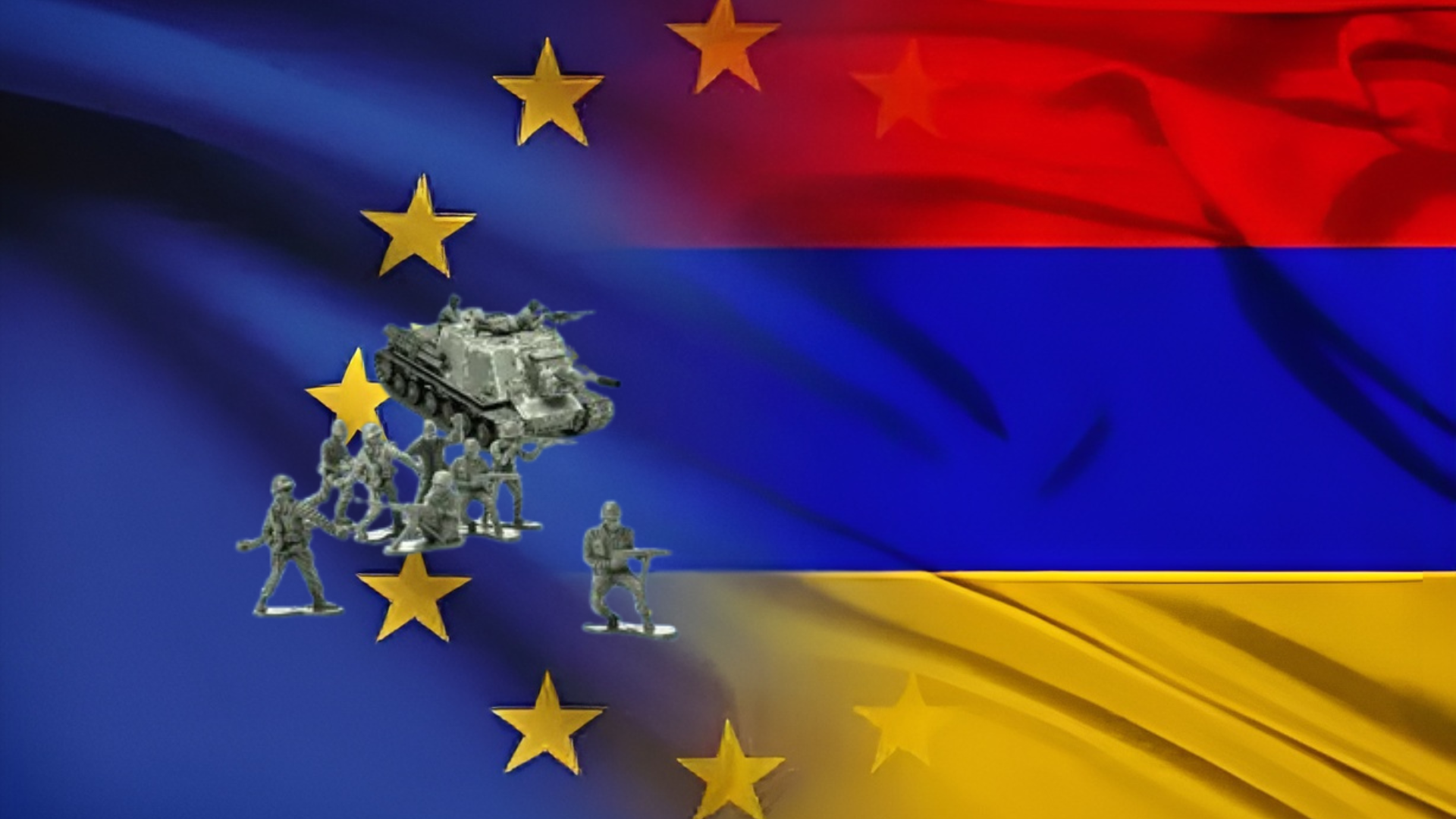EU’s hidden hand militarizing Armenia under guise of security

by Ulvi Narimanli
The European Union’s increasing military engagement with Armenia, masked as security cooperation, is raising serious concerns about the region’s stability. With Yerevan deepening its defense ties with Brussels—securing arms deals, expanding military diplomacy, and embedding EU monitors along its borders—the question arises: Is the EU genuinely promoting peace, or is it laying the groundwork for renewed conflict?
The recent decision to station a military attaché at Armenia’s mission to the EU and Belgium, following a similar appointment to NATO, signals a clear strategic shift. Coupled with growing arms supplies from France and military assistance from Germany, the EU’s role in the South Caucasus is evolving from diplomatic mediator to active defense partner. Yet, while Brussels justifies these moves as "support for Armenia’s security," the reality suggests a calculated effort to militarize the region under the pretext of peacekeeping.
A peace fund—or a war chest?
A key tool in this expansion is the European Peace Facility (EPF), which is set to funnel another €10 million into Armenia’s defense sector. Estonian Prime Minister Kaja Kallas, a vocal proponent of stronger EU involvement, has been spearheading this initiative. But despite its name, the EPF has become an instrument for militarization rather than diplomacy.
France has taken the lead in supplying Yerevan with Mistral air defense systems, Bastion armored vehicles, and long-range artillery. Germany, while claiming its support is "non-lethal," is laying the foundation for deeper defense ties. Meanwhile, Armenia continues to arm itself through extensive deals with India, acquiring rockets, anti-tank missiles, and drone technology.
This buildup is reflected in Armenia’s soaring military budget, which has nearly doubled since 2020, jumping from $785 million to $1.4 billion in 2024. Yerevan’s pivot from Russian security guarantees to Western military aid is not merely a shift in alliances—it is a high-stakes gamble that risks plunging the region into another cycle of conflict.
EUMA
The EU Monitoring Mission in Armenia (EUMA), which recently secured a two-year extension with an additional €44 million in funding, presents another layer of EU involvement. Marketed as a civilian initiative, its true function appears far more strategic. With over 200 personnel from 25 EU states and Canada, EUMA is operating under the radar as a de facto intelligence network—gathering data, advising Armenian forces, and reinforcing Brussels’ grip on the region.
Despite claims of neutrality, the EU’s one-sided policies tell a different story. By embedding monitors and expanding defense cooperation with Armenia, Brussels is not merely watching the situation unfold—it is actively shaping it.
At its core, the EU’s deepening security footprint in Armenia is about more than just Yerevan’s defense—it is about the EU’s struggle to gain influence in the South Caucasus. With Azerbaijan asserting its independence and Georgia maintaining a delicate balance, Brussels sees Armenia as its last foothold in the region.
But this military alignment comes at a cost. By pouring weapons and funding into Armenia, the EU is emboldening nationalist factions and revanchist narratives. This could encourage new provocations rather than fostering lasting stability. The post-2020 realities in the region are clear: Azerbaijan has fully restored its territorial integrity, and no amount of Western military aid can alter this fact.
Brussels claims to be promoting peace, but its actions suggest otherwise. The steady militarization of Armenia, the embedding of intelligence-linked monitors, and the direct supply of arms raise a critical question: Is the EU preparing Armenia for stability—or setting it up for another confrontation?
No matter how many weapons Europe sends, Azerbaijan holds the geopolitical upper hand. If Brussels truly seeks peace, it must abandon its reckless one-sided approach and recognize that security in the South Caucasus cannot be achieved through military escalation. Otherwise, the EU may find itself not as a mediator, but as an enabler of the very conflict it claims to prevent!
Here we are to serve you with news right now. It does not cost much, but worth your attention.
Choose to support open, independent, quality journalism and subscribe on a monthly basis.
By subscribing to our online newspaper, you can have full digital access to all news, analysis, and much more.
You can also follow AzerNEWS on Twitter @AzerNewsAz or Facebook @AzerNewsNewspaper
Thank you!
